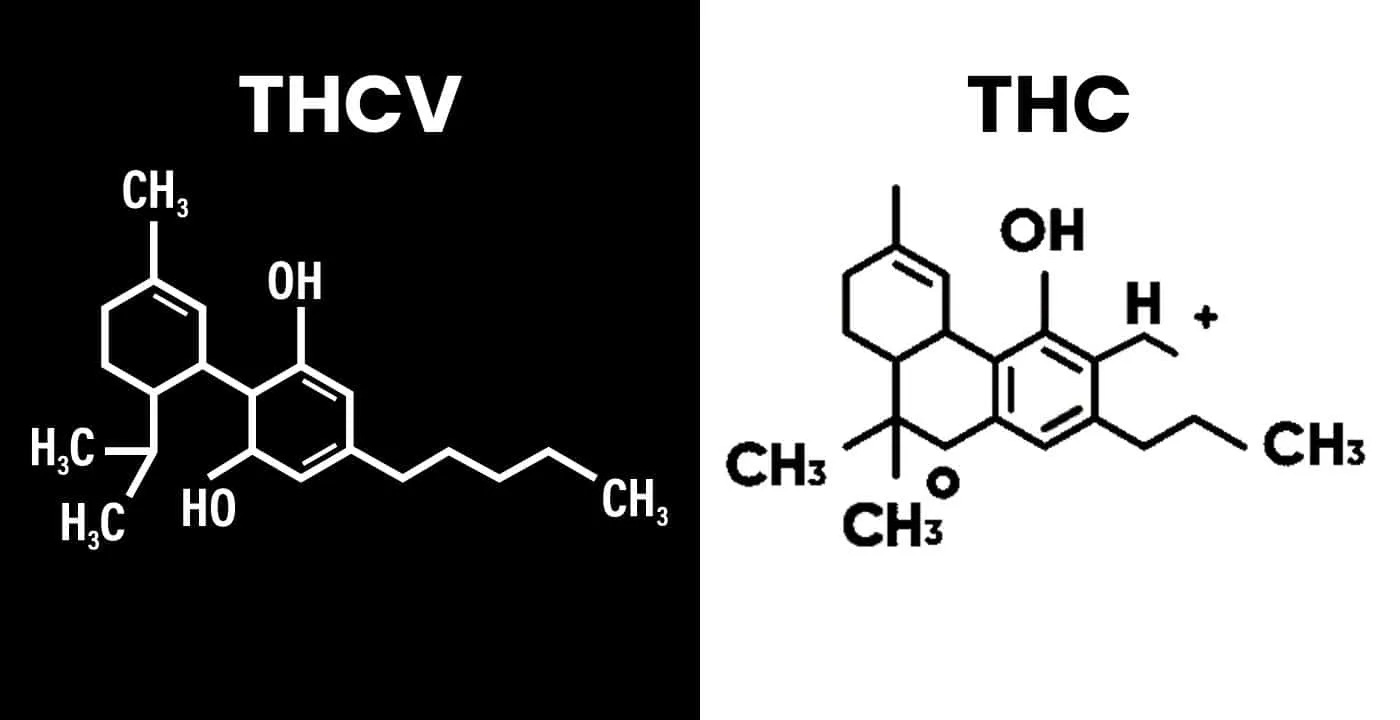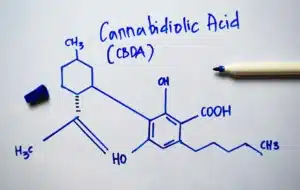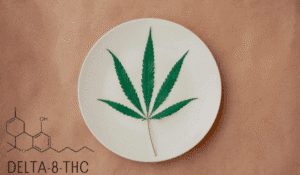A cannabis plant contains over 100 cannabinoids, each with unique properties and effects. However, two cannabinoids that are mainstream for the majority of products are THC (tetrahydrocannabinol) and THCV (tetrahydrocannabivarin). THC is widely known for its psychoactive properties, but THCV is a lesser-known cannabinoid that has distinctly different characteristics.
In this article, we explore the THCV vs THC comparison to understand their therapeutic benefits, similarities, and differences.
Sections
ToggleWhat is THC?
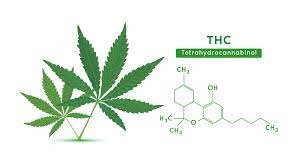
THC, also known as Delta-9 tetrahydrocannabinol, is the primary psychoactive compound in cannabis. It is the cannabinoid that causes the characteristic “high” associated with marijuana use. THC can directly interact with the body’s endocannabinoid system, binding to CB1 receptors in the brain and nervous system.
Key effects and uses:
- THC has euphoric and psychoactive effects that result in feelings of relaxation, altered perception, and mood elevation
- It has pain management and anti-inflammatory properties that are helpful in the management of pain caused by conditions like arthritis and inflammatory conditions
- Its appetite stimulation benefit is helpful for patients with eating disorders, cancer, or HIV/AIDS-related appetite loss
What is THCV?
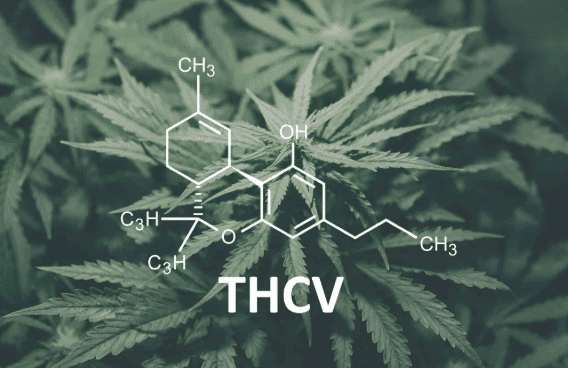
THCV or tetrahydrocannabivarin is a minor cannabinoid found in smaller concentrations in certain cannabis strains. Cannabis plants in the African region have THCV. Interestingly, THCV exhibits unique properties that counteract some of THC’s effects, earning it the nickname “diet weed.”
Key features of THCV:
- THCV has appetite suppression qualities that can reduce appetite rather than stimulate it, as opposed to THC’s “munchies” effect
- It has potential weight management qualities. Research suggests THCV may help regulate metabolism and support weight loss efforts.
- Shorter psychoactive effect duration makes THCV more subtle and clear-headed than THC.
THC vs. THCV: Key Differences
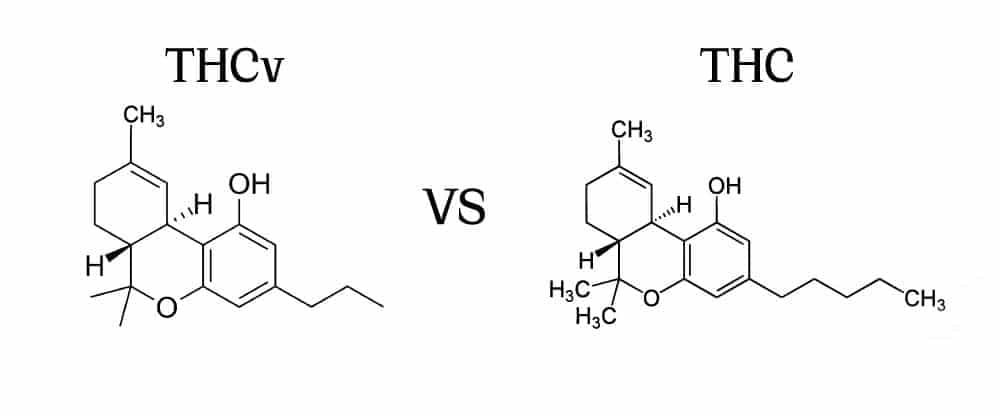
Aspect | THC | THCV |
Chemical Structure | C21H30O2 molecule with pentyl side chain | C19H26O2 molecule with propyl side chain |
Psychoactivity | Highly psychoactive, produces signature euphoric “high” | Mildly psychoactive at high doses, short-lived “high” |
Appetite | Stimulates appetite (known as “munchies” effect) | Suppresses appetite helping weight management |
Effects | Sedating, relaxing, mood-altering | Energizing, focus-enhancing, appetite-reducing |
Medical Research | Extensive research available | Limited but growing research |
Availability | Abundant in most cannabis strains | Rare, found mainly in specific African strains |
Legality | Federally illegal in most jurisdictions | Legal status varies, often unregulated |
Shelf Life/Stability | Naturally volatile, relatively stable under proper storage | Less stable, degrades more quickly |
Benefits and Potential Therapeutic Uses
To better understand the THC vs THCV difference, you need to understand the benefits.
THC benefits:
- More natural chronic pain relief from neuropathic pain, fibromyalgia, and cancer-related pain management.
- Nausea and vomiting control make THC particularly beneficial for chemotherapy patients and individuals with severe morning sickness.
- Can provide sleep aid and insomnia treatment, helping patients fall asleep faster and maintain deeper sleep cycles.
- Its muscle spasm reduction effects make THC valuable for multiple sclerosis, epilepsy, and other neurological conditions.
THCV benefits:
- THCV can help reduce body weight and regulate glucose metabolism in diabetic patients, providing weight management support.
- It provides calming effects while maintaining mental clarity and focus, offering anxiety reduction without sedation.
- Early research suggests THCV might help regulate blood sugar levels and improve insulin sensitivity, providing a potential diabetes management benefit.
- THCV can also provide bone health support and help manage conditions like osteoporosis.
Side Effects and Safety Considerations
Ultimately, before choosing any of the cannabinoids, you should be aware of the side effects.
THC
- Paranoia and Anxiety: High doses of THC can trigger intense anxiety, panic attacks, and paranoid thoughts. It is essential to start in small doses, particularly for sensitive individuals or inexperienced users.
- Impaired Memory: THC is known to significantly affect short-term memory formation and recall. Consumers must be careful to prevent impacting their daily functioning and learning capabilities.
- Drowsiness or Fatigue: Individuals can experience sedation and lethargy, which can interfere with work, driving, and other activities.
- Overconsumption Risk: Due to delayed offset, it’s easy to consume too much, especially with edibles. However, it can lead to uncomfortable and prolonged psychoactive effects.
THCV
- Possible Appetite Suppression: Beneficial for weight management, THCV, when overused, can cause excessive appetite reduction, which could be problematic for individuals who need to maintain or gain weight.
- Limited Research: THCV is still not widely studied. The lack of comprehensive studies makes the risk of potential side effects and long-term consequences higher.
- Potential Sleep Disruption: The energizing properties of this cannabinoid might interfere with sleep patterns. Avoid consuming later in the day.
- Unknown Long-Term Effects: In the absence of extensive clinical trials, the long-term side effects of THCV remain unclear.
Conclusion
THC and THCV are both cannabinoids with remarkable properties, but understanding their differences is essential. While THC remains the dominant psychoactive compound with well-established therapeutic applications, THCV is emerging as a promising alternative for those seeking cannabis benefits without significant intoxication. The THC vs THCV distinction is particularly important for patients using medical cannabis. One has unique appetite-suppressing and metabolism-regulating properties, while the other is a mood regulator with sedating effects.

